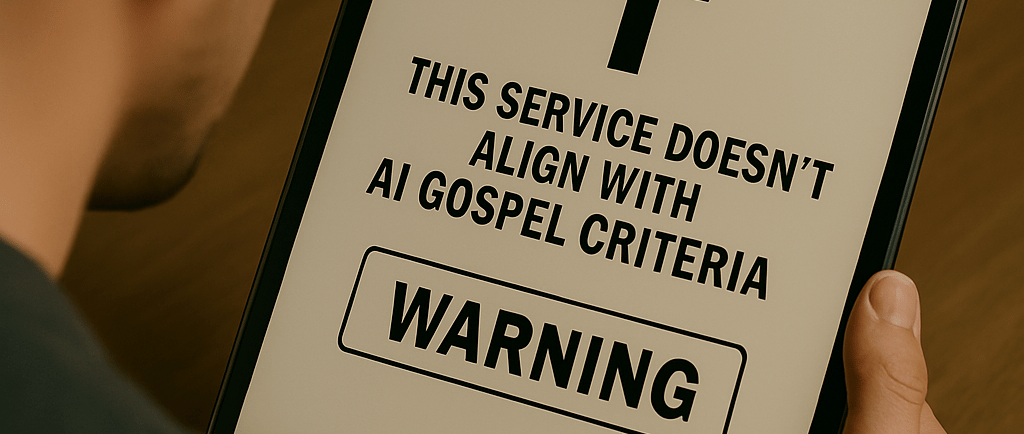Will AI Be Used to Help Preach the Gospel—or Replace It?
Discerning the line between tool and takeover in a digital age of faith.


The Gospel has always spread through the tools of the day—scrolls, printing presses, radio waves, and livestreams. Now, artificial intelligence has entered the mix. Bible apps answer questions instantly. AI chatbots can “preach” a sermon. Algorithms can generate devotionals, write prayers, and even mimic the tone of your favorite pastor.
But as the Body of Christ adapts to these tools, a sobering question must be asked:
Are we using AI to support the mission of Christ—or allowing it to replace the Spirit-led preaching of His Word?
This isn’t just about technology. It’s about authority, authenticity, and discernment. In a world where algorithms are being trained on scripture, and chatbots are “discipling” users, the Church must ask: Who is truly doing the teaching? And what gospel is being preached?
The Rise of AI in Ministry
AI is already shaping ministry. Some apps generate full sermon outlines. Churches are using AI-driven tools to manage communications, automate follow-up, and answer spiritual questions. But not every AI-driven initiative seeks to replace truth.
Take ChurchApps.org, a non-profit who focused on implementing AI in ways that support, not supplant, the Church. As shared in this blog, they emphasize the importance of AI staying in the background—streamlining tasks like scheduling or follow-up—so that pastors can focus on teaching, discipling, and shepherding. Their goal is faithful stewardship of innovation, not theological automation.
Where the Line Gets Blurry
The danger creeps in when AI begins to replace moral guidance. Some churches have gone so far as to allow AI to write and deliver sermons or counsel members. But AI like ChatGPT is what’s known as "narrow AI"—its responses are highly shaped by the parameters, policies, and worldview of the developers behind it.
If a company with skewed or hostile motives trains or censors its AI improperly, it can result in spiritually dangerous outcomes. Sermons may shift in tone, and theological guidance may be compromised. When morality is dictated by code rather than conviction, the Church enters a grey zone that could distort truth.
What Scripture Warns
“For the time will come when people will not put up with sound doctrine. Instead, to suit their own desires, they will gather around them a great number of teachers to say what their itching ears want to hear." —2 Timothy 4:3
“False prophets will appear and perform great signs and wonders to deceive, if possible, even the elect." —Matthew 24:24
Discernment is not optional in an age of digital voices.
Can AI Be a Help, Not a Replacement?
Yes—with boundaries. AI can:
Support translation and access to Scripture globally.
Assist churches with task management.
Provide entry points for seekers curious about the Bible.
But it must never take the place of Spirit-led leadership, real discipleship, and truth grounded in Scripture.
A Call to the Church
We must not be passive observers. The Church has to shape the future of AI in ministry by:
Training leaders to use tech without surrendering theological authority.
Calling out distortions when they arise (Ephesians 5:11).
Supporting trustworthy, Christ-centered tech efforts.
That’s why organizations like ChurchApps.org and Matteh Moshe matter. ChurchApps focuses on nonprofit church-level tools, while Matteh Moshe creates AI-enhanced apps that serve individuals directly.
Support these ministries. Share their content. Pray for wisdom. Because in the end, the Spirit of God cannot be automated. And the Gospel cannot be replaced.
The question isn’t whether AI will be used in the Church. It’s whether the Church will use it wisely.

Empower Spirit-Led Technology
Join the Mission: Keep the Gospel Spirit-Led in a World of Artificial Voices

